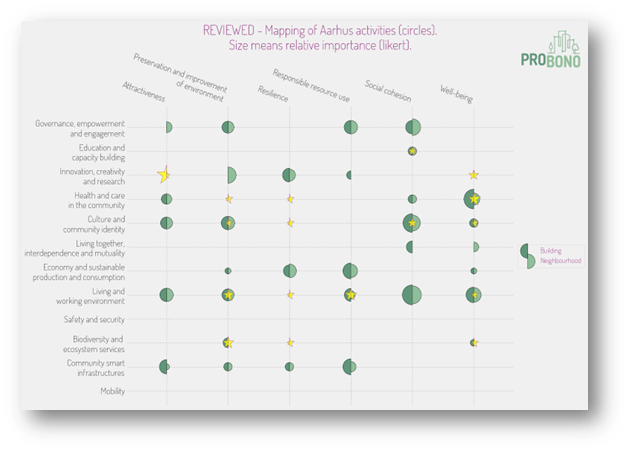Standardisation: What is PROBONO Doing in This Area?
- Aug 6, 2025
- 2 min read
In the field of European research projects, standardisation is a key instrument for dissemination. PROBONO actively uses standardisation both to keep up with the state of the art and to push the boundaries of sustainable urban development. Below you will find an overview of PROBONO's approach to standards and its significant activities in this field.

Utilising Standards in PROBONO's Development
A large number of standards are used for the development of solutions within PROBONO. One notable application is the definition of the Green Building Neighbourhood (GBN) concept, where the ISO 371XX series plays a crucial role. These standards help design smart and sustainable communities by providing guidance on KPIs, urban data management, business models and more. In particular, the ISO 37101 standard serves to map sustainability with citizen services, creating a comprehensive picture of what a GBN can be. This mapping serves as a reference framework in PROBONO's Living Labs (LL) to align visions and activities and identify areas of synergy and opportunities for growth.
PROBONO actively contributes to ongoing standardisation efforts by liaising with the relevant committees. At international level, PROBONO is linked to ISO/TC 268 Sustainable Cities and Communities and at European level to the corresponding CEN/TC 465. This enables the project to present and discuss its results to experts, such as during the ISO Open Webinar on Net Zero Carbon Cities Pathways in May 2025, where PROBONO gave two presentations:
Decision Support for Sustainable Neighbourhood Interventions: Strategies on the Pathway to Net-Zero Cities
Green Building Neighbourhoods as Pathways in PROBONO H2020 for Transition to Zero Carbon Cities
Further links with CEN/TC 350 Sustainability of construction works and CEN/TC 442 Building Information Modelling (BIM) will be sought to strengthen PROBONO's engagement in the standardisation community and broaden its influence.

Developing Independent Standardisation Documents
PROBONO not only contributes to existing standards, but also creates its own standardisation documents. In April 2025, the project initiated the development of a CEN Workshop Agreement (CWA) focusing on Building Information Modelling (BIM) and the integration of architectural design intentions to create social value. This document aims to define social intentions for digitisation and automated BIM-based analysis and to provide a framework for the assessment of specific social values and their verification through BIM. It is aimed at architects, designers and researchers managing both existing and new buildings.
The draft will be open for public comment before its official publication at the end of 2025, so that the community can provide input to improve quality. Once published, it will be accessible free of charge on the CEN website.
Conclusion
PROBONO’s efforts in standardisation reflect a comprehensive strategy to integrate innovative solutions into urban development practices. By actively using, contributing to, and developing standards, PROBONO ensures robust solutions and fosters collaboration across the European research landscape. As the project continues to engage in standardisation, it paves the way for sustainable urban transformations.



Comments